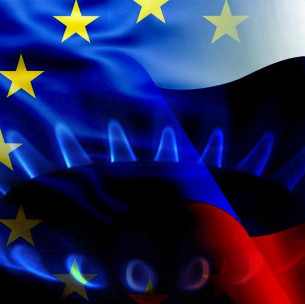Amid the fierce, increasingly large-scale and bloody riots in the Republic of Kazakhstan, a CSTO peacekeeping mission was launched in the country on January 6, at the request of its legitimate authorities. The mission's essence and tasks were described by Collective Security Treaty Organization Secretary General Stanislav Zas: "The first one is protection of the most important government, strategic facilities; and the second one is assistance in maintaining public order, so that people can feel safe."
An additional, but vital unofficial aspect of the mission is the prevention of ethnic strife capable of causing "Lebanonization", as well as the protection of millions of Russians, millions of Russian-speaking and Russian-cultural Kazakhs whom their chauvinism-mired and archaic fellow tribesmen who contemptuously call them "asphaltic". Such people are also very vulnerable under the current government with its encouragement of creeping ethnocracy, while success of the local "revolution of dignity" makes their situation a lot more intricate and tragic.
One of the key causes for satisfying the Kazakh authorities' request for allied assistance was the appeal by President of the Republic of Kazakhstan Kassym-Jomart Tokayev to the fact that the core of anti-government forces are actually international terrorists. The Russian Foreign Ministry also assessed the events in Kazakhstan as outside-inspired.
It should not go unspoken that the unrest, like in other similar cases, started with real negative socio-economic and political phenomena originating with the government itself. But it should also be noted that Kazakhstan's events do have an important international context and some hidden circumstances.
Even after the tragic events of a decade ago in Zhanaozen, when the security forces used arms to disperse workers' protests, the Kazakh media fomented the idea about a possible engagement of Western, particularly American special services. Versions of this kind may well be considered conspiracy. But the constantly increasing number of Western NGOs and "soft power" cells, both under Nazarbayev and his successor, is absolutely open, transparent and undisguised. At the moment, their number has reached 22 thousand.
Thus, it became known in 2020 (we wrote about it) that the US State Department is going to develop "American corners" in Kazakhstan. A plan was announced to allocate about three dozen grants ranging from 2.5 thousand to 50 thousand dollars each for the development of such places. "American corners" were called cultural and educational centers in the republic, where "educational programs on entrepreneurship, economics, media literacy, cultural heritage, innovation, climate and other issues" should be implemented. Almost all the key and some other Kazakhstani cities were designated as the program's deployment location. Kazakh journalists immediately recognized that one of the priorities was cultivation and strengthening of anti-Russian sentiment, something like "it was the Russians who staged a famine genocide and killed 3.5 million Kazakhs."
Moreover, under Trump, new American Ambassador William Moser came to Kazakhstan, an experienced diplomat and good specialist as regards "soft power" and public sentiment redesigning. Moser, being the US ambassador to Moldova, visited LGBT "marches" and was also seen at Kiev's Maidan.
Actually, with all the essential difference between the set of Maidan and Kazakh protests parameters, there are also some shared features. Thus, the role of the unrest's moral inspirer and coordinator was assumed by fugitive oligarch and ex-minister Mukhtar Ablyazov, who is allegedly in Paris himself, while Kiev hosts his headquarters actually engaged in unrest coordinating and information support. Wherever he personally is, Ablyazov spreads telltale appeals on social networks, like: "We will be like the Kyrgyz, Ukrainians, Georgians, Armenians, who overthrew their own poisonous regime! We will be like the Americans, the French, the Germans, the Italians, and build a country as cool as America and Europe!" By the way, notorious Dmytro Yarosh gives advice to the protesters on how to defeat the authorities.
The stance of the West and other powers, with their interests linked to Kazakhstan, is also interesting. In its address, the Turkish Foreign Ministry wished a speedy recovery to the victims of clashes, as well as peace and tranquility to the population of Kazakhstan, and expressed hope for the end of the confrontation in the near future. Thereby Ankara, having naturally and pragmatically failed to support the opposition (it has good relations with the authorities, after all), actually positioned itself above the fight and ready to interact with any winner.
Neither did EU or US diplomacy express explicit support for the rioters, but called for a peaceful settlement and, in fact, for negotiations between the authorities and the opposition. At that, White House Speaker Jen Psaki doubted the legitimacy of the CSTO peacekeeping mission in Kazakhstan. Besides, US Secretary of State Blinken meaningfully held talks on the situation in Ukraine and Kazakhstan with the Foreign Minister of the UAE, a country the Kazakh elite has the closest financial and property ties with. And, quite interestingly, it was at the peak of the unrest success that aforementioned Psaki said Washington did not intend to articulately respond to Russia's earlier security proposals.
Obviously, ahead of the upcoming Russian-American talks in Geneva, the Brussels meeting of the Russia-NATO Council and the Vienna meeting of the OSCE Council, a geopolitical game is underway in several parts of Eurasia, and Kazakhstan has become the key place overnight. No less obviously, Russia's rigidity as regards defending its interests in the post-Soviet space is essential for at least some success at these negotiations. The first instances of logical binding between rigidity extent and outcome success is already noticeable in practice, as the morning of January 6 saw the CSTO mission get translated from intention into reality, while in the evening same Psaki said it would not jeopardize negotiations. And head of the US State Department's press service Net Price declared Washington's readiness to help the Kazakh authorities in solving issues that caused the unrest.









